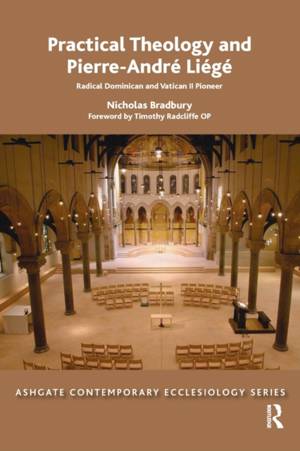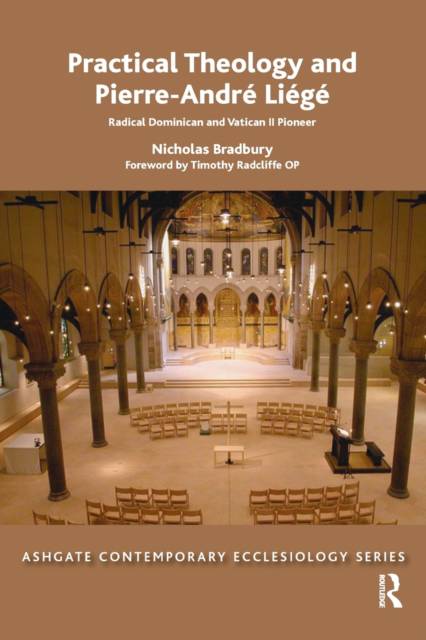
Je cadeautjes zeker op tijd in huis hebben voor de feestdagen? Kom langs in onze winkels en vind het perfecte geschenk!
- Afhalen na 1 uur in een winkel met voorraad
- Gratis thuislevering in België vanaf € 30
- Ruim aanbod met 7 miljoen producten
Je cadeautjes zeker op tijd in huis hebben voor de feestdagen? Kom langs in onze winkels en vind het perfecte geschenk!
- Afhalen na 1 uur in een winkel met voorraad
- Gratis thuislevering in België vanaf € 30
- Ruim aanbod met 7 miljoen producten
Zoeken
Practical Theology and Pierre-André Liégé
Radical Dominican and Vatican II Pioneer
Nicholas Bradbury
€ 79,45
+ 158 punten
Uitvoering
Omschrijving
This book explores the life and work of Pierre-André Liégé, presenting it to an English speaking readership for the first time. Bradbury discusses the impact and profound challenges Liege's work produces for spirituality, and argues that for faith to match real life, the church today needs to re-examine the question of what it must do to conform to the Gospel. This book takes critical issues confronting practical theology and the church, breaking them open in a lively and accessible style.
Specificaties
Betrokkenen
- Auteur(s):
- Uitgeverij:
Inhoud
- Aantal bladzijden:
- 266
- Taal:
- Engels
- Reeks:
Eigenschappen
- Productcode (EAN):
- 9781138499300
- Verschijningsdatum:
- 12/02/2018
- Uitvoering:
- Paperback
- Formaat:
- Trade paperback (VS)
- Afmetingen:
- 156 mm x 234 mm
- Gewicht:
- 381 g

Alleen bij Standaard Boekhandel
+ 158 punten op je klantenkaart van Standaard Boekhandel
Beoordelingen
We publiceren alleen reviews die voldoen aan de voorwaarden voor reviews. Bekijk onze voorwaarden voor reviews.









